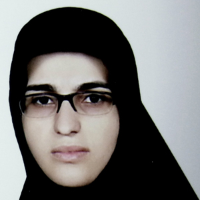Providing a Curriculum Model Based on Depth of Knowledge to Increase the Level of Cognitive Complexity of Learners
A crucial objective of education is to enhance the cognitive functions and deepen the knowledge of learners. This is accomplished by strengthening higher mental functions and fostering cognitive development through engagement in complex thinking. Activities such as exploration and problem-solving play a significant role in facilitating cognitive development among learners. The Norman Webb Depth of Knowledge (DOK) framework enables teachers to elevate the cognitive complexity of learners.
This study aimed to introduce a curriculum model grounded in the Depth of Knowledge (DOK) framework to enhance the cognitive complexity level of learners. The research employed document mining and categorical content analysis methods. Various databases including Science Direct, Google Scholar, Springer, Taylor & Francis, Eric, and Emerald were scrutinized for relevant literature published between 1997 and 2014. Initially, specific keywords and terms such as of knowledge of Webb, complexity of learners, of depth of knowledge, of cognitive complexity articles and texts. A total of 65 documents were identified, with 30 of them aligning with the research objectives. Through content analysis, primary and secondary themes were extracted from the resources, leading to the development of a knowledge-based curriculum model. To ensure validity, the model was reviewed by experts, and their feedback was used to calculate the Content Validity Coefficient (CVR), indicating the model's acceptance among experts.
The research findings in this model introduce four levels of recall and reproduction, skills and concepts, strategic thinking, and extended thinking. These levels predict elements of objectives, method of action, activities, and evaluation appropriate to each level. The curriculum model, based on the depth of knowledge, aims to strengthen skills such as analysis, reasoning, judgment, decision-making, leadership, problem-solving, critical thinking, flexible thinking, and creative thinking. The content based on in-depth knowledge aims to prepare learners to confront complex and ambiguous situations in life. The assessment aligned with in-depth knowledge adjusts the level of questions and activities from low to high complexity.
In the knowledge depth model, learners participate in exploratory and problem-solving tasks, often acquiring knowledge through mental exertion and engagement. Involving students in activities such as interpretation, prediction, inference, classification, analysis, reasoning, critique, invention, design, execution, participation, research, synthesis, self-monitoring, production, and presentation contributes significantly to their cognitive development.
-
Presenting a conceptual framework for designing a future-oriented curriculum
*
Journal of Research in Teacher Education, -
Providing a Conceptual Model of Technological Art Education to Develop the Skills Required by People in the 21st Century
Z. Karami *
Technology of Education Journal,



